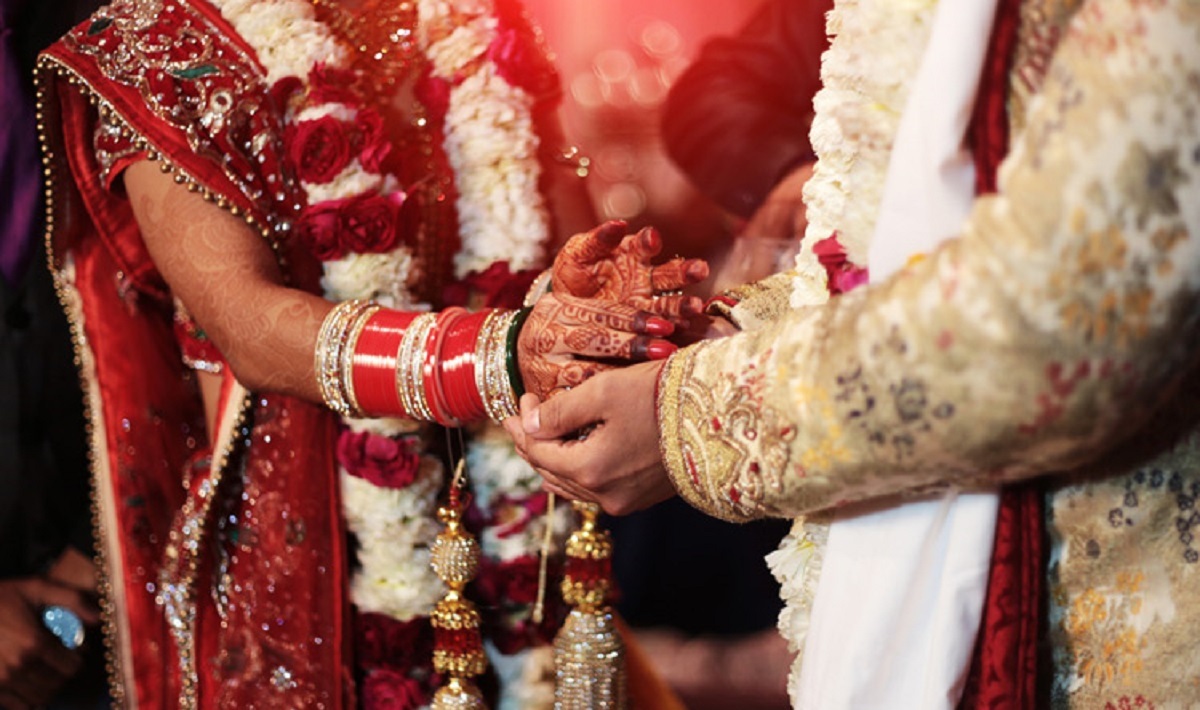Registering marriages with biometrics: If you go to a wedding ceremony in Bengal and during the rounds suddenly some officer comes and starts investigating, then do not be surprised.
Especially when he took out a laptop and a small finger print scanner from his bag and started recording the biometrics records of the bride and groom and the witnesses present there in his system. Actually, this is a special scheme of Mamta government, which has been started in the state from November 1 this year. The objective of this scheme is to register the records of marriages and prevent polygamy.
On-the-spot registration at the wedding venue
According to sources in the Registrar General Office of West Bengal, this new marriage rule has been implemented to digitize the data of marriages in the state and to prevent polygamy by hiding identities. Under this, marriage registrars have been given laptops and finger print scanners after intensive training. Their duty is to go to the marriage venues and register the marriages on the spot (Biometrics Registration). Also record the biometrics records of the key witnesses present at those marriages, so that no party can back out from the marriage.
Biometric records going for couple
According to the officials involved in implementing the scheme, polygamy is a punishable offense under section 494 of the IPC. Despite this, many people, especially men, change their identity to marry more than once. In such a situation, if the biometrics registration department of every person who gets married is available, then as soon as the details are given for the second marriage, the system will recognize that a particular person has been married earlier.
System recording details of witnesses
According to the marriage registrar, when the marriage of the bride and groom is confirmed (West Bengal Marriage Registration Rules), then they will have to come to the registrar office and apply for marriage. Biometric records of both will be recorded on the same occasion. After this, on the wedding day, the registrar will reach the wedding venue with his laptop and finger print scanner and will record the biometrics records of key witnesses along with photos and short videos. This entire process will take him only half an hour.
Online marriage registration in West Bengal (West Bengal Marriage Registration Rules) was started in June 2019. Under this, the paperwork for marriage registration was done on the spot, while online registration was done later. However, now after the introduction of biometrics system, online marriage registration in Bengal will be done immediately on the spot.
Officials are counting the benefits of the scheme
Officials enumerate many benefits of this scheme. According to him, biometric registration of marriages (West Bengal Marriage Registration Rules) will make it easier to identify whether the accused is actually married and if yes, to whom. This will stop fraud in marriages. Also, cases of polygamy or bigamy will reduce and the legal claims of any victim will be strengthened. Not only this, if a couple gets divorced, the woman will also get help in getting maintenance allowance.
Measures to prevent cyber crime
Officials associated with the scheme say that to avoid cyber crime, fingerprints will be hidden and encrypted in the fingerprint scanner. That means their hacking or identity theft will not be possible. Officials excited by the scheme say that the new marriage rules in Bengal (West Bengal Marriage Registration Rules) have come into effect from November 1. From then till November 15, the department received more than 5500 applications, out of which marriage registration of 2700 was also done.
Have Muslims got exemption?
Sources say that the new rules of marriage in the state have been applicable to marriages taking place under the Hindu Marriage Act, 1954 and the Special Marriage Act, 1954. That means these rules are applicable to Hindus, Sikhs, Buddhists, Jains and Christians. Muslims are outside its scope. In such a situation, it may be too early to say anything about the success of the plan.
